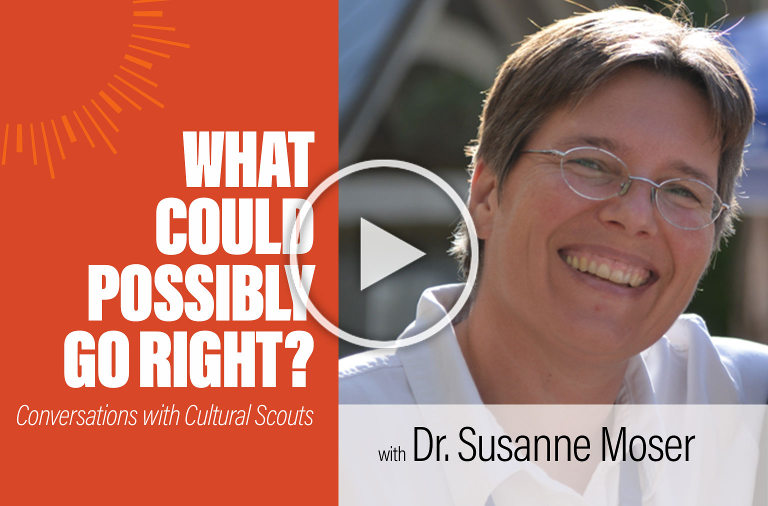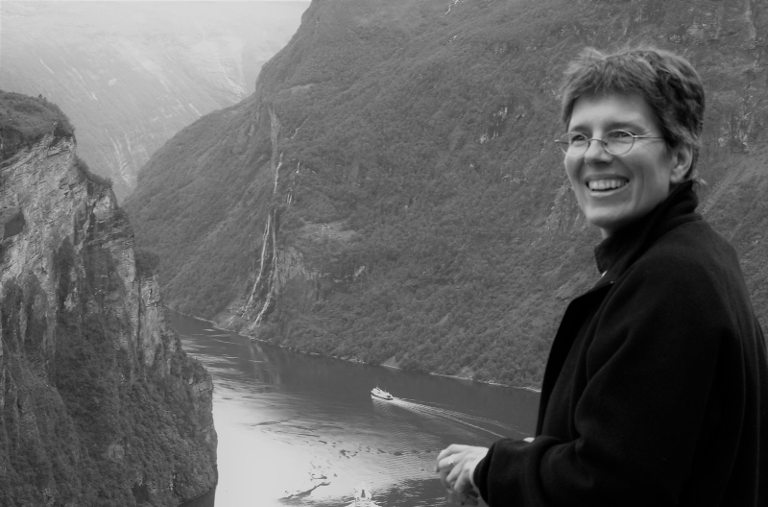Dr. Susanne Moser is Director and Principal Researcher of Susanne Moser Research & Consulting, in Hadley, MA, a Research Faculty in the Environmental Studies Department of Antioch University New England and an Affiliated Faculty in the Department of Landscape Architecture and Regional Planning at UMass-Amherst. Susi’s work with governmental and non-governmental organizations, researchers and others in the US, Canada, Europe, Australia and beyond focuses on adaptation to climate change, science-policy interactions, effective climate change communication, and psycho-social resilience in the face of the traumatic and transformative challenges associated with climate change. A geographer by training (Ph.D. 1997, Clark University) with broad interdisciplinary expertise, Dr. Moser previously held positions at the National Center for Atmospheric Research, the Union of Concerned Scientists and the Heinz Center. She has served on scientific and advisory boards for Future Earth, the International Social Science Council (now, International Science Council), the International Human Dimensions Program, National Research Council, and other agencies and organizations. She contributed various scientific assessments of the IPCC, and also was a member of the federal advisory committee for the Third US National Climate Assessment and co-lead of its coastal chapter. Susi is the editor of two award-winning edited volumes, one on successful adaptation to climate change; the other on how to communicate climate change. She is a prolific writer, an inspiring speaker, and has been elected as a fellow of the Aldo Leopold Leadership, Kavli Frontiers of Science, Donella Meadows Leadership, Google Science Communication, and Walton Sustainability Solutions Programs.
What Could Possibly Go Right?: Episode 5 Dr. Susanne Moser
In this episode Dr. Susanne Moser brings her work’s emphasis on climate change adaptation to the question of “What Could Possibly Go Right?”
July 2, 2020
Despairing about the Climate Crisis? Read This.
So we’re having to deal with completely new environmental conditions, and we will be changed by that. Can we imagine that? No. Can we try to imagine that we’re not just clobbering each other over the head or blowing each other up? I can imagine something different.
October 3, 2019



